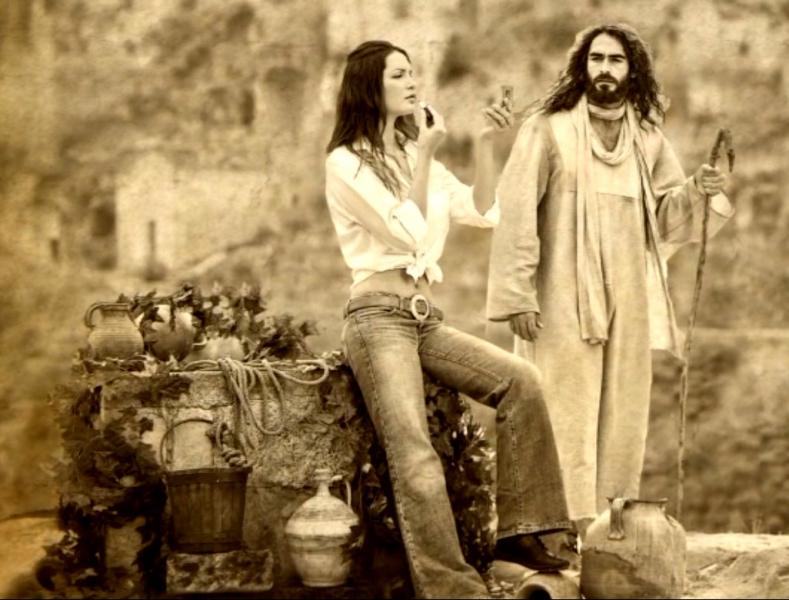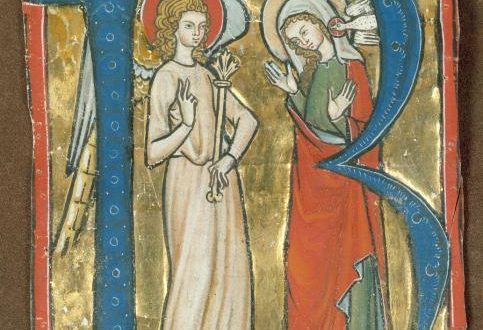
Was the woman at the well a “bad girl?”
For four decades I've believed, and even taught, that the Samaritan woman in John 4 was an immoral degenerate woman. Why? Because Jesus reveals her history with men in John 4:18. She has had five husbands and she is not married to the man she is with now. In our day, women with that kind of past would certainly be considered morally loose, until Jesus cleanses them. But as women scholars discover more about the social norms of first century marriage, I wonder if we have judged her prematurely?
I used to teach that she drew water alone from the well at noon because she was a social outcast. But we have no evidence that in the Greco-Roman world upright women visited the well at certain times and loose women at other times. If we observe a shepherd tending his flocks alone, we don't assume he is immoral. Or if we see a woman grinding grain alone that she is somehow an outcast. We simply assume the Samaritan woman is a social outcast because she has been married five times, and she's living with someone now. But could there be other explanations for her marital past? Here are a few possibilities based on research by Dr. Lynn Cohick, associate professor of New Testament at Wheaton College, and author of "Women in the World of the Earliest Christians, Illuminating Ancient Ways of Life".
1) Could she have been widowed?
Naomi, Ruth's mother-in-law, lost her husband and two sons in a short span of time (Ruth 1:1-4). Life expectancy in biblical times was dramatically shorter than ours. Also, women often married at thirteen or fourteen, sometimes to older men, making widowhood common in the first century. And because women needed a male relative or husband to protect them, many widows remarried. She could easily have been widowed more than once.
2) Could she have been divorced?
If the woman at the well was barren, more than one discontent husband might have divorced her. Jewish law in general reserved the right of divorce to the husband. Many commentators have assumed that the woman at the well must have filed for divorce five times, but among the handful of Greek and Aramaic Jewish divorce documents, we have only one that seems to be initiated by a wife, and she needed a male representative to help her. It's far more likely that several husbands may have divorced her, leaving her unprotected in a harsh culture.
3) Could she have been a concubine?
In the Greco-Roman world, women concubines were not unusual. She might have currently been in a relationship with a Roman citizen who could not legally marry her because she might have been below him in social rank. She might have been waiting on a dowry before a contract of marriage could be enacted. Examining first century legal records and contracts make for varying possibilities.
4) Could she have been a second wife?
Historical evidence shows that polygamous relationships existed in the first century. It's possible that her new companion was already married to someone else. Cohick writes, "Was she in love with the man with whom she was currently abiding? Was that love so strong that she was willing to 'share' her man with his wife. It may be that in her community the Samaritan woman was 'married' as the second wife, but in Jesus' eyes, her marriage is null and void because he rejected bigamy."
As we look back into the customs of the day, we can devise a number of scenarios that explain why the woman at the well had five husbands and her current companion was not legally her husband. Additional evidence comes right out of the narrative.
I've always been troubled by the town folk's response to her testimony in John 4:28-30: "Then leaving her water jar, the woman went back to the town and said to the people, 'Come, see a man who told me everything I ever did. Could this be the Christ?' They came out of the town and made their way toward him." They believed her immediately! No doubting, even in a culture that did not allow women to give testimony in a trial. If she had been the town "bad girl" I doubt they would have listened, much less dropped what they were doing and set out to find Jesus. John even makes a point of telling us in 4:39 that "Many of the Samaritans from that town believed because of the woman's testimony." She was an evangelist, an unlikely role if her past had disqualified her.
Also, unlike the woman caught in adultery, Jesus never rebukes her or advises her to "go and sin no more". Instead Jesus uses this situation to teach his disciples that the harvest is ripe–now. He tells them that they will reap what others have sown, and that they can rejoice together over what God has done through them. I wonder if Jesus might have been referring to the woman at the well as the one who sowed–a marvelous title for a woman bent on sharing the good news that the Christ had come for all and all have a part in serving him.
As we consider ministry to God's people, sixty percent of whom are female (that's the percentage of women in the Church in the US), we need to relook at the women of the Bible. Yes, some were bad girls, but others have been quickly assessed into that category without careful scholarship. I've done that myself. And I have to ask myself why? A good question for us all.
(Photo by Michael Belk, from his excellent collection entitled "Journeys with the Messiah." See JOURNEYSWITHTHEMESSIAH.org)




3 Comments
patriice oakley
I am a “woman at the well”
As a fellow woman, a woman at the well, a woman of multiple marriages, I am thankful for this research persective.. I entered a relationship with Jesus when I was 20, but that new creation beginning didn't mean that my damage from childhood neglect and abuse had been instantly overcome. Although I'm 56, I still find traces of my childhood brokenness every day, and I don't expect that these will completely disappear until I meet Jesus in Heaven. My brokenness led me to marry and remarry people who were very broken themselves and these marriages were fragile, quite painful, and desparately lonely.
No one wakes up one morning and says: "What I want for my life is to be married several times;" just as no one would dream of their perfect future as a drug addict, alcoholic, or prostitute. The woman at the well is a precious story for me, a story of Jesus' unconditional love for one who found themself in a place in their life they wouldn't have dreamed for their future, a story of hope for redemption and usefulness.
Sue Edwards
Dear woman at the well
Thanks Patrice, for your beautiful words. You are not alone. And you are a beautiful picture of God's redemtive plan that can redeem any who seek Him. It's important that Christians understand God's love for women at the well–thanks for sharing your story. I know it will encourage others and God will use it to make beauty out of the ashes. Blessings.
Aaron Baca
Regardless I believe the bid
Regardless I believe the bid ideas from the story remain the same. Would you take the time to read my blog on this same story?
http://whatsaaronthinking.blogspot.com/2015/05/on-gods-bothersome-nature.html